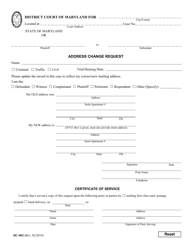
Its principle was completely understood, and was opposed with equal zeal and ability. The bill for incorporating the bank of the United States did not steal upon an unsuspecting legislature, and pass unobserved. The power now contested was exercised by the first Congress elected under the present constitution. The principle now contested was introduced at a very early period of our history, has been recognized by many successive legislatures, and has been acted upon by the judicial department, in cases of peculiar delicacy, as a law of undoubted obligation. It has been truly said that this can scarcely be considered as an open question, entirely unprejudiced by the former proceedings of the nation respecting it. The first question made in the cause is, has Congress power to incorporate a bank? On the Supreme Court of the United States has the constitution of our country devolved this important duty. But it must be decided peacefully, or remain a source of hostile legislation, perhaps of hostility of a still more serious nature and if it is to be so decided, by this tribunal alone can the decision be made. No tribunal can approach such a question without a deep sense of its importance, and of the awful responsibility involved in its decision. The constitution of our country, in its most interesting and vital parts, is to be considered the conflicting powers of the government of the Union and of its members, as marked in that constitution, are to be discussed and an opinion given, which may essentially influence the great operations of the government. In the case now to be determined, the defendant, a sovereign State, denies the obligation of a law enacted by the legislature of the Union, and the plaintiff, on his part, contests the validity of an act which has been passed by the legislature of that State. Marshall ruled in favor of the Federal Government and concluded, “the power to tax involves the power to destroy."Ĭhief Justice Marshall delivered the opinion of the Court. This case presented a major issue that challenged the Constitution: Does the Federal Government hold sovereign power over states? The proceedings posed two questions: Does the Constitution give Congress power to create a bank? And could individual states ban or tax the bank? The court decided that the Federal Government had the right and power to set up a Federal bank and that states did not have the power to tax the Federal Government. The Supreme Court, however, decided that the chartering of a bank was an implied power of the Constitution, under the “elastic clause,” which granted Congress the authority to “make all laws which shall be necessary and proper for carrying into execution” the work of the Federal Government.


Maryland filed a suit against McCulloch in an effort to collect the taxes. bank, refused to pay the taxes imposed by the state. McCulloch, a Federal cashier at the Baltimore branch of the U.S. In 1818 the State of Maryland approved legislation to impose taxes on the Second National Bank chartered by Congress. Many states questioned the constitutionality of the national bank, and Maryland set a precedent by requiring taxes on all banks not chartered by the state.

In 1816 Congress established the Second National Bank to help control the amount of unregulated currency issued by state banks. This case involved the power of Congress to charter a bank, which sparked the even broader issue of the division of powers between state and the Federal Government. Maryland, Chief Justice John Marshall handed down one of his most important decisions regarding the expansion of Federal power. In the landmark Supreme Court case McCulloch v.


 0 kommentar(er)
0 kommentar(er)
